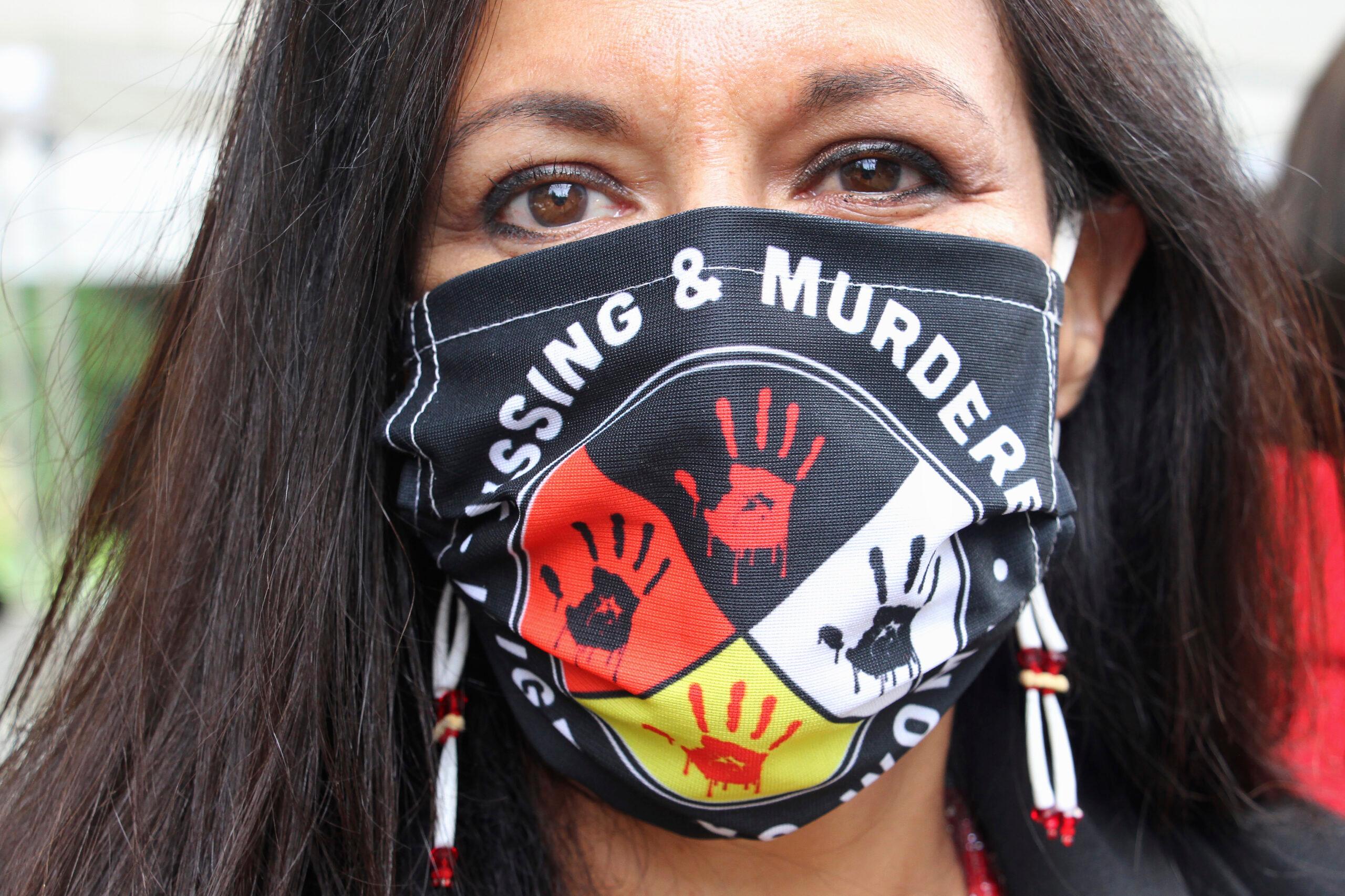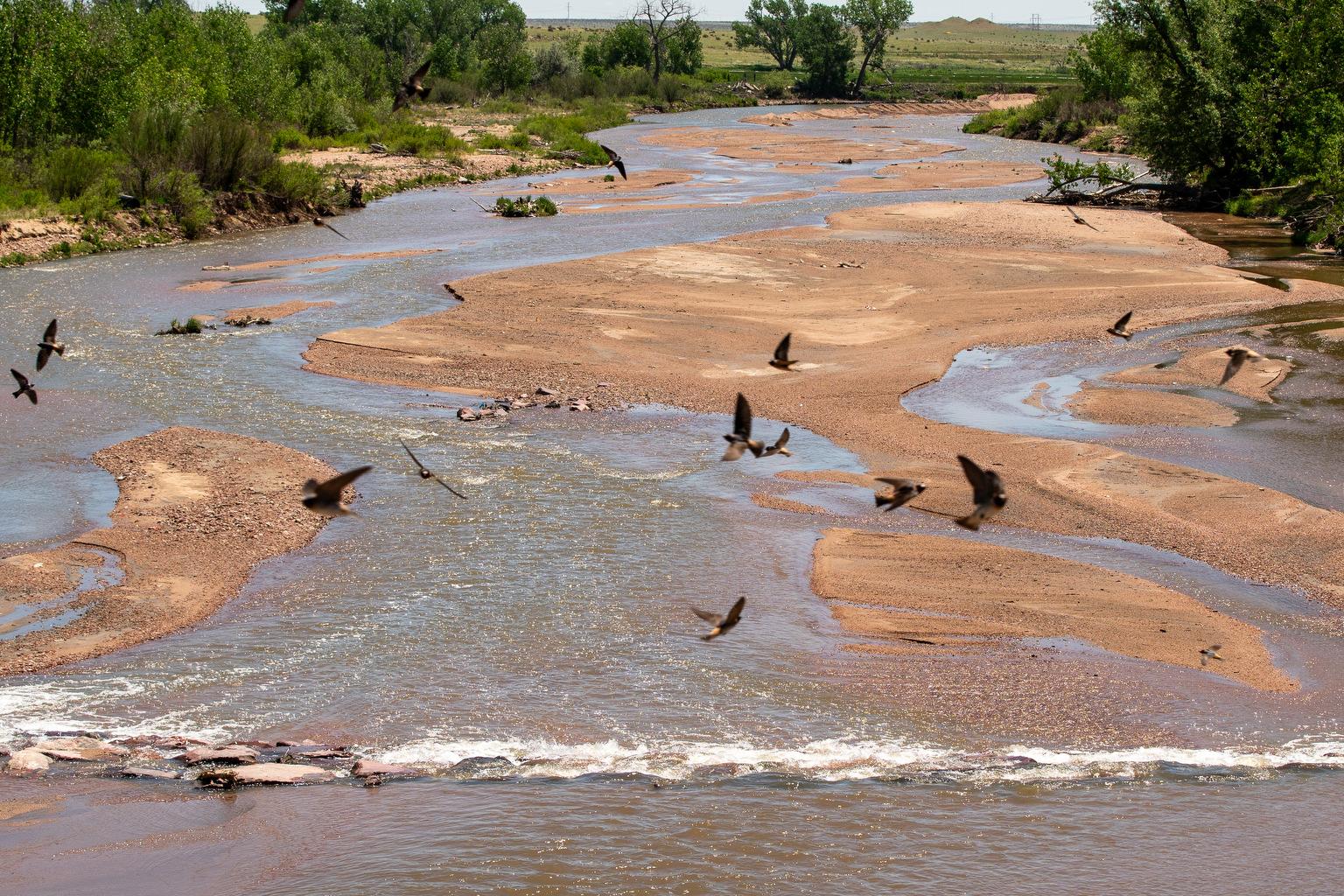
Gov. Jared Polis’ administration has requested changes to a bill meant to help solve the disappearances and murders of Indigenous people in Colorado.
That’s not going over well with the sponsors and some of the community members behind the effort, who may try to force the governor’s hand by passing the bill anyway.
Indigenous people suffer violent crime at higher rates than the general population, an issue sometimes referred to as MMIR — “missing and murdered Indigenous relatives.” (Many groups also refer to MMIW, ‘missing and murdered Indigenous women.’)
The bill, SB22-150, proposed the creation of a new state office to help coordinate investigations of individual cases and to fight the problem of disappearances more broadly.
In a letter to the sponsors, the Polis administration said it supports the goal but questions the method. Instead of creating a new state office with five employees, the administration wants to set up a mostly volunteer task force while also assigning four agents from the Colorado Bureau of Investigation to specifically work on MMIR issues.
State Sen. Jessie Danielson, a Democratic sponsor, said Colorado needs a dedicated office to tackle these crimes because they often cross jurisdictional and cultural borders, allowing cases to fall through the cracks. She’s been working on the bill for more than a year and said the Indigenous people she’s working with feel the same way.
“The most important thing is that the governor remembers that this bill came to us from the community. It was their idea on how to solve this problem, the violence that they have to endure, and they understand how we should be solving it,” she said.
Raven Payment, a member of a grassroots MMIR effort in the state, said the state needs to show it’s committed to this effort to win the trust of Indigenous communities.
“Having this office … means that they have a person or persons that they can go to, that they trust is going to do the right thing on their behalf,” she said.
The CDC reports Indigenous women are nearly three times more likely than white women to be killed in a homicide. Black women died by homicide at similarly high rates.
Crimes against Indigenous people can take an extraordinarily long time to solve, advocates said, because of insufficient law enforcement, a lack of media attention, and complicated issues of federal, local, and tribal police jurisdiction.
Concerns over scope of state effort
As drafted, the bill is expected to cost the state about $570,000 a year, including the salaries for a five-person office. Those positions could include a director, a data analyst, an administrative assistant, criminal investigator and a training specialist. The director would have to be “closely connected” to a tribe or Indigenous community.
But the Polis administration thinks the state isn’t ready to support a new office. “The language in the bill creates a broad scope of work, with expectations that are beyond the mission and skill set of the Department of Public Safety,” wrote spokesman Conor Cahill in an email.
Instead, the administration suggested that the Colorado Bureau of Investigation create a team of agents to coordinate investigations and create best practices, and try to recruit Indigenous employees to work on it.
The administration also proposed creating a taskforce within the Colorado Commission on Indian Affairs to tackle policy issues related to MMIR. As proposed, the taskforce would meet two to four times a year and have one paid staffer, plus more than a dozen members from government agencies, Indigenous communities and elsewhere.
In total, the Polis administration would dedicate the same number of employees — five — but in a different form than the original bill.
“We have proposed an alternative approach that would have the Colorado Commission of Indian Affairs (CCIA) lead a robust process across state agencies, in partnership with American Indian/Alaska Native communities, to examine the wider issues that contribute to MMIR and to develop a set of recommendations for how the State can most successfully bring justice and provide supports to MMIR and their families. By doing this we can center and elevate Native American voices more effectively,” Cahill continued.
The original bill also calls for a system that could alert Indigenous communities to disappearances and endangered people. The governor’s administration suggested, instead, that the state could modify the existing Missing and Endangered Alert System.
Polis proposal rejected
Some of the bill’s sponsors say the administration’s requests go too far, and they’re willing to risk a veto to stick with their original vision.
“It seems to me that they’re keen to create offices, they just don’t want to create this one,” Danielson said, referring to the fact Polis has spearheaded the establishment of numerous new offices, including the Office of Saving People Money on Health Care, the Office of the Future of Work, and the Office of Early Childhood Education.
Danielson supports the administration’s proposal to dedicate CBI agents to the cause, but she objects to the idea that an unpaid group is the right way to take on the bigger policy questions. That’s better handled with a permanent, paid office, she said.
Danielson and state Rep. Monica Duran, a Democrat, said they would not accept the administration’s changes. Instead, they will attempt to get their version of the bill through the legislature. Doing so would essentially challenge the governor to veto the bill.
“This is the right thing to do. What we're fighting for, what we're trying to establish here is important,” Duran said.
However, another sponsor, Democratic Rep. Leslie Herod said in a text she was “confident that we will find common ground” on the right approach.
Raven Payment wants to see the original bill passed, too. Advocates have maintained a list of more than 50 disappearances and deaths, she said.
“The system hasn't done right by them,” Payment said. “And so as we have these conversations, you know, their stories and their names are always etched in the back of my mind.”
The bill also would require the CBI to maintain a database on missing Indigenous people from Colorado,with a public-facing website. And the board that oversees the state’s law-enforcement training and standards — the POST Board — would develop training for officers in best practices for investigating the cases of missing and murdered Indigenous people.
The governor’s administration has not objected to those provisions.
Last year, Minnesota authorized what it described as the nation’s first Office of Missing And Murdered Indigenous Relatives.
Editor's Note: This story has been updated with a quote from Rep. Leslie Herod.








